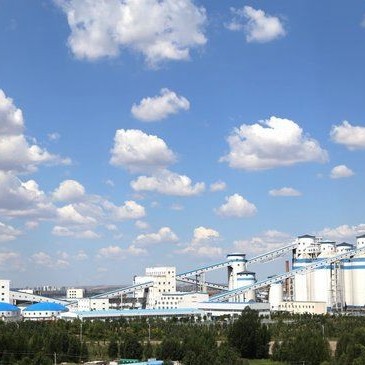
-
 Afrikaans
Afrikaans -
 Albanian
Albanian -
 Amharic
Amharic -
 Arabic
Arabic -
 Armenian
Armenian -
 Azerbaijani
Azerbaijani -
 Basque
Basque -
 Belarusian
Belarusian -
 Bengali
Bengali -
 Bosnian
Bosnian -
 Bulgarian
Bulgarian -
 Catalan
Catalan -
 Cebuano
Cebuano -
 China
China -
 China (Taiwan)
China (Taiwan) -
 Corsican
Corsican -
 Croatian
Croatian -
 Czech
Czech -
 Danish
Danish -
 Dutch
Dutch -
 English
English -
 Esperanto
Esperanto -
 Estonian
Estonian -
 Finnish
Finnish -
 French
French -
 Frisian
Frisian -
 Galician
Galician -
 Georgian
Georgian -
 German
German -
 Greek
Greek -
 Gujarati
Gujarati -
 Haitian Creole
Haitian Creole -
 hausa
hausa -
 hawaiian
hawaiian -
 Hebrew
Hebrew -
 Hindi
Hindi -
 Miao
Miao -
 Hungarian
Hungarian -
 Icelandic
Icelandic -
 igbo
igbo -
 Indonesian
Indonesian -
 irish
irish -
 Italian
Italian -
 Japanese
Japanese -
 Javanese
Javanese -
 Kannada
Kannada -
 kazakh
kazakh -
 Khmer
Khmer -
 Rwandese
Rwandese -
 Korean
Korean -
 Kurdish
Kurdish -
 Kyrgyz
Kyrgyz -
 Lao
Lao -
 Latin
Latin -
 Latvian
Latvian -
 Lithuanian
Lithuanian -
 Luxembourgish
Luxembourgish -
 Macedonian
Macedonian -
 Malgashi
Malgashi -
 Malay
Malay -
 Malayalam
Malayalam -
 Maltese
Maltese -
 Maori
Maori -
 Marathi
Marathi -
 Mongolian
Mongolian -
 Myanmar
Myanmar -
 Nepali
Nepali -
 Norwegian
Norwegian -
 Norwegian
Norwegian -
 Occitan
Occitan -
 Pashto
Pashto -
 Persian
Persian -
 Polish
Polish -
 Portuguese
Portuguese -
 Punjabi
Punjabi -
 Romanian
Romanian -
 Russian
Russian -
 Samoan
Samoan -
 Scottish Gaelic
Scottish Gaelic -
 Serbian
Serbian -
 Sesotho
Sesotho -
 Shona
Shona -
 Sindhi
Sindhi -
 Sinhala
Sinhala -
 Slovak
Slovak -
 Slovenian
Slovenian -
 Somali
Somali -
 Spanish
Spanish -
 Sundanese
Sundanese -
 Swahili
Swahili -
 Swedish
Swedish -
 Tagalog
Tagalog -
 Tajik
Tajik -
 Tamil
Tamil -
 Tatar
Tatar -
 Telugu
Telugu -
 Thai
Thai -
 Turkish
Turkish -
 Turkmen
Turkmen -
 Ukrainian
Ukrainian -
 Urdu
Urdu -
 Uighur
Uighur -
 Uzbek
Uzbek -
 Vietnamese
Vietnamese -
 Welsh
Welsh -
 Bantu
Bantu -
 Yiddish
Yiddish -
 Yoruba
Yoruba -
 Zulu
Zulu
Exploring the Benefits and Applications of Molded Fiberglass in Modern Manufacturing Techniques
The Rise of Molded Fiberglass A Versatile Material for the Modern Age
Molded fiberglass, often referred to as fiberglass reinforced plastic (FRP), has emerged as a game-changer in various industries due to its remarkable properties and versatility. This composite material consists of a polymer matrix reinforced with glass fibers, offering a unique combination of strength, durability, and lightweight characteristics. It has gained significant traction in sectors ranging from automotive to construction, and its popularity continues to grow as industries seek innovative solutions to improve performance and efficiency.
One of the most notable advantages of molded fiberglass is its exceptional strength-to-weight ratio. This feature is particularly beneficial in the automotive industry, where manufacturers are increasingly focusing on reducing vehicle weight to enhance fuel efficiency and overall performance. Molded fiberglass components can replace traditional metal parts, leading to lighter vehicles without compromising safety or structural integrity. As a result, many automakers are integrating molded fiberglass into their designs, contributing to a more sustainable future.
In addition to automotive applications, molded fiberglass is widely utilized in the construction industry. Its resistance to corrosion, moisture, and chemicals makes it an ideal material for various applications, including roofing, cladding, and insulation. Molded fiberglass is also known for its excellent thermal and electrical insulation properties, which are critical in the construction of buildings and infrastructure. Furthermore, its lightweight nature allows for easier installation and transportation, reducing labor costs and improving project timelines.
molded fiberglass

The marine industry has also benefited greatly from the advent of molded fiberglass. Boats and yachts made from this material are not only lighter and faster but also exhibit remarkable resistance to harsh marine environments. Molded fiberglass can withstand saltwater exposure, UV radiation, and extreme temperatures, making it a preferred choice for boat manufacturers. The aesthetic versatility of this material allows for creative designs and finishes, appealing to a wide range of consumers seeking both functionality and style.
Molded fiberglass's applications extend into the realm of consumer products as well. Items such as sporting goods, electronic housings, and furniture have all benefited from the unique properties of this composite material. The ability to easily mold fiberglass into complex shapes allows for innovative designs that enhance functionality while maintaining visual appeal. This is particularly important in an era where consumers increasingly prioritize both performance and aesthetics in their purchases.
Despite its many advantages, the production and use of molded fiberglass are not without challenges. The manufacturing process can be complex, requiring specialized equipment and expertise. Additionally, the disposal of fiberglass products raises environmental concerns, as traditional methods of waste disposal may not be suitable for composite materials. However, ongoing research and development in recycling methods and sustainable practices are addressing these issues, paving the way for a more eco-friendly approach to the use of molded fiberglass.
In conclusion, molded fiberglass has emerged as a versatile and valuable material across various industries. Its unique properties make it an excellent choice for applications that require strength, durability, and lightweight performance. As technological advancements continue to progress, the potential for further innovation in the use of molded fiberglass is vast. With an increasing emphasis on sustainability and efficiency, molded fiberglass will undoubtedly play a crucial role in shaping the future of materials science and industrial design.
Latest news
-
Fiberglass 90 Degree Elbow for Custom Tanks & High Pressure Pipes Durable and Corrosion ResistantNewsJun.24,2025
-
Exploring the Benefits of Top Hammer Drifter Rods for Enhanced Drilling PerformanceNewsJun.10,2025
-
High-Precision Fiberglass Winding Machine for GRP/FRP Pipe Production – Reliable & Efficient SolutionsNewsJun.10,2025
-
FRP Pipes & Fittings for Shipbuilding - Corrosion-Resistant & LightweightNewsJun.09,2025
-
Premium FRP Flooring Solutions Durable & Slip-ResistantNewsJun.09,2025
-
Premium Fiberglass Rectangular Tanks Durable & Lightweight SolutionNewsJun.09,2025









